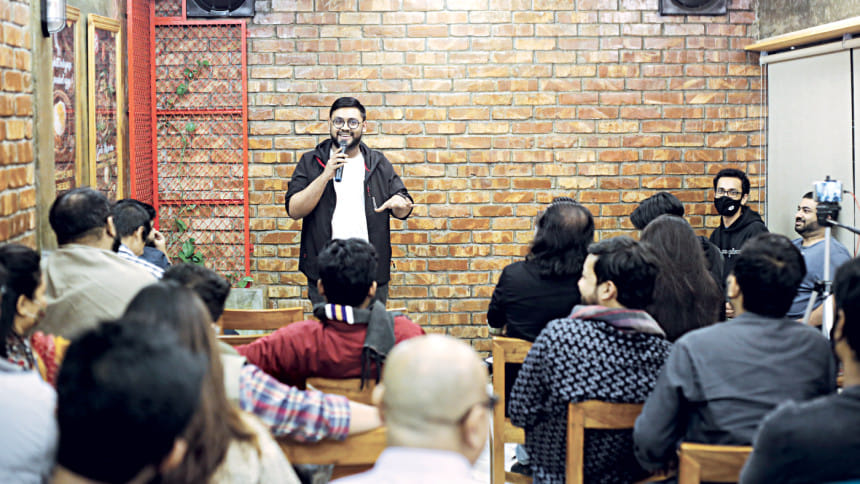Can we take a joke? The struggle of stand-up comedy in Bangladesh

Bangladeshis have a great sense of humour, whether it be witty banters at tea stalls or coming up with the most brilliant memes every time our cricket team loses a match. However, when it comes to stand-up comedy, there seems to be a disconnection. Our neighbouring countries such as India have embraced the realm of stand-up comedy and produced some big names as well, we for some reason just cannot fathom this concept as an entertainment option.
Sami Doha, a comedian and artist of our country, believes the conditioning of our minds is the biggest obstacle to the success of this industry, "People of our country do not want to spend money on art. The concept of going to a comedy club and enjoying a fun skit still is not considered a form of entertainment," explained Sami.
Comedy frequently stems from the unique experiences and cultural practices of a region. Indian comedians have crafted extremely relatable jokes by drawing on the richness of their culture, politics, and everyday lives. On the other hand, Bangladesh's stand-up culture is still relatively young, thus comedians may find it difficult to strike a balance between comedy and cultural background.

The possible backlash creates another challenge. Comedians may be afraid to go too far and hurt people's feelings in a conservative environment. Whereas comedians abroad frequently break barriers and address taboos.
"One of the biggest barriers might be the fear of censorship or worse, public outrage! The cancel culture right now is costing us some great skits that have the potential to bring social awareness," shared Sami.
There is yet hope for stand-up comedy in Bangladesh despite these obstacles. Due to their exposure to worldwide content via the Internet, younger people are more open to a wider variety of entertainment options. They are eager to see more stand-up comedy performed locally and like the relatable humour. This change in the population may lead to the growth of a thriving comedy scene.
The good news is, a few talented comedians are already gaining popularity. Shedding light on the success of the big names in the industry, Sami added, "Some brave comedians of our country are changing the narrative. They are taking risks, experimenting with material, and the audience is rewarding them with the love that they truly deserve."
Although there are many obstacles in the way of stand-up comedy in Bangladesh, the potential is there. With a little courage, cultural adjustment, and creativity, Bangladesh may soon be giggling with the rest of the world.

 For all latest news, follow The Daily Star's Google News channel.
For all latest news, follow The Daily Star's Google News channel. 








Comments